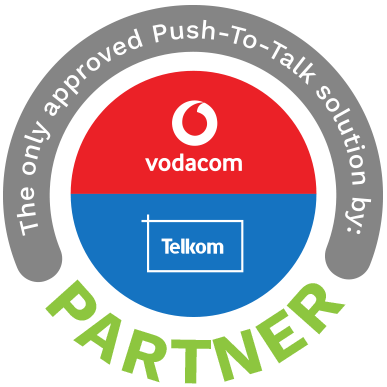In today’s fast-paced and data-driven world, businesses are constantly seeking innovative ways to gain a competitive edge. Data Dashboards, like Instacom Business Intelligence (iBi), have become indispensable tools for organisations looking to leverage their data effectively. But what makes a data dashboard so valuable?
Let’s explore how it transforms raw numbers into actionable insights across industries Instacom serves, including security, logistics, healthcare, and retail.
Centralised Data, Centralised Decisions
Modern businesses generate enormous amounts of data daily, often stored across multiple systems. A Data Dashboard consolidates this information into a single, intuitive interface, allowing teams to access real-time insights without juggling spreadsheets or logging into multiple platforms.
Example – Security Industry:
A security company managing patrols and incident reports across multiple sites can use a single dashboard to view the status of active patrols, track response times, and monitor incident trends in real-time.
The value:
- Saves time by automating data collation from multiple sites
- Provides a unified view of operations for better decision-making
- Enables quick identification of areas requiring immediate attention
Real-Time Insights for Agile Businesses
In industries where timing is critical, having access to real-time data is a necessity. Data Dashboards process and display live updates, ensuring businesses always have the most current information.
Example – Logistics Industry:
A logistics company tracking fleet movements can use iBi to monitor vehicle locations, delivery times, and route efficiency in real-time. If a vehicle encounters a delay, alternative arrangements can be made instantly to keep the supply chain moving.
The value:
- Enables quick responses to delays or disruptions
- Enhances route optimisation and delivery accuracy
- Minimises downtime and improves customer satisfaction
Visualising Data for Clarity
Numbers on a spreadsheet can be overwhelming, especially for non-technical team members. Data Dashboards present information visually, using graphs, charts, and KPIs that are easy to understand at a glance.
Example – Healthcare Industry:
A hospital using iBi can visualise patient admission rates, bed occupancy, and staff availability through an intuitive interface. This enables administrators to allocate resources efficiently and respond to surges in demand.
The value:
- Makes complex data accessible to medical teams and administrators
- Facilitates quicker decision-making during emergencies
- Reduces the risk of misinterpreting critical information
Customisation for Unique Business Needs
Every business is different, with unique goals and challenges. A key advantage of a tool like iBi is its ability to adapt. Businesses can customise their dashboards to display the metrics that matter most to them.
Example – Retail Industry:
A retail chain can create tailored dashboards to monitor daily sales performance, inventory levels, and customer footfall at each store location. Managers can adjust promotions or restock inventory based on real-time trends.
The value:
- Aligns analytics with specific business objectives
- Highlights the most relevant KPIs for store managers
- Provides actionable insights to boost sales and efficiency
Predictive Analytics for Future Success
Data Dashboards don’t just show you what’s happening—they can help you understand why and predict what’s next. With features like predictive analytics, businesses can anticipate trends, identify risks, and seize opportunities.
Example – Security Industry:
A security firm can use predictive analytics to anticipate high-risk periods for incidents based on historical data, allowing them to allocate more resources to specific sites during those times.
The value:
- Informs long-term planning and strategy
- Reduces uncertainty by offering data-backed forecasts
- Enhances preparedness for potential risks
Improved Collaboration and Accountability
Data Dashboards provide a shared platform where teams can track progress and hold each other accountable. With automated reporting and scheduled updates, everyone stays aligned, fostering a culture of transparency and teamwork.
Example – Logistics Industry:
Fleet managers and drivers can track delivery KPIs, such as on-time rates and fuel efficiency, using a shared dashboard. Automated updates ensure that everyone is working with the same data.
The value:
- Keeps teams aligned on shared goals
- Builds trust through transparent performance metrics
- Streamlines communication across departments
Cost Savings and ROI
At first glance, investing in a Data Dashboard might seem like a significant expense. However, the long-term savings far outweigh the initial cost. By automating data processing, eliminating inefficiencies, and improving decision-making, dashboards deliver measurable ROI.
Example – Healthcare Industry:
By analysing resource utilisation and patient flow, a hospital can identify inefficiencies, reduce unnecessary costs, and allocate resources more effectively to high-demand areas.
The value:
- Reduces operational inefficiencies
- Maximises the utility of existing data
- Drives growth and profitability through better decisions
The Bigger Picture: Empowering Data-Driven Cultures
A Data Dashboard is more than just a tool—it’s a catalyst for creating a data-driven culture within an organisation. By making insights accessible to all, it empowers employees at every level to make smarter decisions. This shift in mindset not only improves individual performance but also drives collective success.
Ready to Elevate Your Business with iBi?
The value of a Data Dashboard lies in its ability to turn data into actionable insights that drive meaningful results. With tools like Instacom Business Intelligence, businesses in security, logistics, healthcare, retail, and more can stay ahead of the curve, make smarter decisions, and unlock their full potential.
Are you ready to transform your data into your greatest asset? Contact us today to learn more about how iBi can empower your business: Instacom Business Intelligence















Comments
Be the first to write a comment.